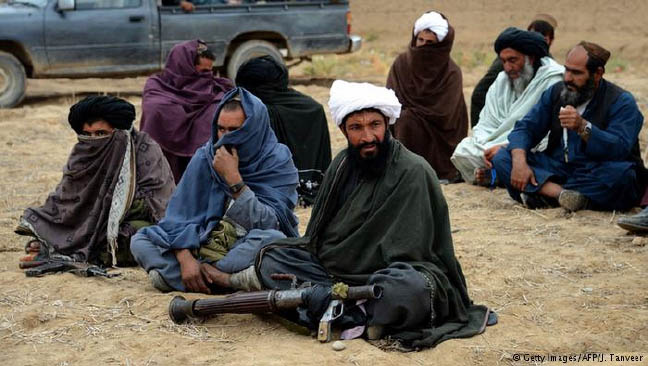The Afghan-Pak relation has thawed in recent months and Pakistan will host the first round of direct peace talks between the Afghan government and Taliban elements and other insurgents likely to be held this month. The four-nation group, comprises Pakistan, Afghanistan, China and the United States, have been working to revive the peace process that stalled last year following the revelation of Mullah Omar’s death, who had been dead for over two years. The fourth meeting of the Quadrilateral Coordination Group (QCG) on resuming negotiation in Kabul on February 23, 2016 agreed on the venue for the dialogue, but stayed short of announcing a date.
Pakistan’s Adviser on Foreign Affairs Sartaj Aziz said publicly that the Afghan Taliban’s leadership enjoys shelter inside Pakistan, which is used as a “lever” to pressure the group into coming to the negotiating table. This admission comes as Pakistan has been officially denying Taliban’s safe haven in its soil and influence over them, whose 14-year-insurgency against Afghan and NATO forces has claimed tens of thousands of civilian and military lives. Speaking at the Council on Foreign Affairs in Washington on Tuesday, Express Tribune Newspaper quoted him as saying, “We have some influence on them because their leadership is in Pakistan and they get some medical facilities, their families are here. So we can use those levers to pressurize them to say, ‘Come to the table’.”
Aziz said Islamabad had used the threat of expulsion to force the Taliban into the first round of talks. “We already – before the 7th July meeting last year – we had to use some of these levers and restricted their movements, restricted their access to hospital and other facilities, and threatened them that if you do not come forward and talk, then obviously we will at least expel you …. We are not the actual negotiators. So I hope as we go along our sincerity in this task will be recognized, and with the hope that Afghan government will play a more active role for the success of these talks,” he is cited as saying.
However, a former Taliban leader Syed Akbar Agha dubbed the four-nation talks in Islamabad and Kabul as “ineffective” for the discussion remained hidden from the nation and Taliban representatives were not present in the talks. He said, “Both the warring sides should show flexibility in stance on making the peace process effective. If the government accepts some legal demands of Taliban, I believe the peace process would succeed.” He believed that despite being divided into different parties, the Taliban were united in demand stance over foreign troops’ withdrawal from Afghanistan. He also appreciated the appointment of Syed Ahmad Gilani as the new chief of the High Peace Council (HPC) for his good relation with the Taliban and the government and disengagement in any conflicts. Agha said that if the HPC functioned as a legal and independent body, it could play a significant role in the peace process.
Taliban announced their preconditions in Doha on January 23, which include complete withdrawal of the foreign forces from Afghanistan, official recognition of Taliban’s political office in Qatar, removal of Taliban from United Nations terrorist blacklist, halt to the arrest and elimination of Taliban and release of the Taliban inmates from prisons. It is also said that Taliban have asked for establishing interim government. Will Afghanistan accept the preconditions, which has no legal basis?
It is said that the National Unity Government (NUG) shows tendency towards amending the constitution and acceptance of the Taliban’s aforementioned preconditions. Qutbuddin Hilal said to a Pakistani Newspaper, “The national unity government is willing to discuss amendments to the constitution, help remove names of Taliban leaders from a UN sanctions list, reopen the Taliban political office in Qatar and release their prisoners.” However, he added that Afghan President denied the establishment of interim government and stated that Taliban elements no longer persist on immediate withdrawal of foreign forces. It is self-explanatory that peace talk has generated controversy in abundance within more than a decade. It is believed that accepting the Taliban’s preconditions, mainly releasing their prisoners, has no legal basis since they inflicted heavy casualties on Afghan combatants and non-combatants alike. The victims’ families will never absolve the Taliban of spilling the blood of their near and dear ones. There is no doubt that Afghan nation suffered painfully under the Taliban regime and militancy continues unabated despite the regime’s fall.
Moreover, a number of Taliban prisoners, who were released during Hamid Karzai’s administration, rejoined the battle and fought against the Afghan soldiers. Hence, the government must ensure that in case of being freed, the Taliban members will not turn back to the battles and the warring parties will cease insurgency. Pakistan offered to host the first round of direct talks between the Afghan government and Taliban representatives following the QCG’s fourth round meeting and it is tasked to bring ten Taliban’s high-ranking figures to the negotiating table. As Pakistan frequently pushed for resuming peace talk as a gesture of goodwill, it has to nudge the Taliban to hold negotiation with Afghan government and give up inflicting further casualties on our nation. Although Taliban lay much emphasis on their preconditions, it is Pakistan to put pressure on them by using the “levers” and influence.
Home » Opinion » Controversy over Peace Talk
Controversy over Peace Talk
| Hujjatullah Zia

